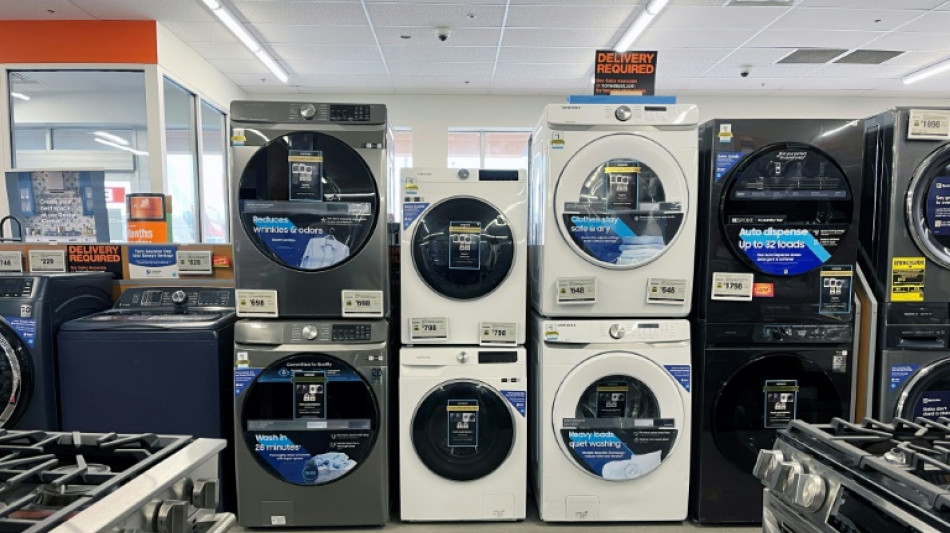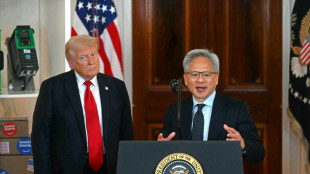

US consumer inflation cooled in April to lowest level since 2021
US consumer inflation cooled slightly in April, figures showed Tuesday, coming in better than expected against a background of President Donald Trump's sweeping tariffs.
The data covers the period including introduction of Trump's new levies against most countries -- including steep duties on China -- which spooked financial markets and raised fears of a spike in prices.
The US president has since reversed some of the duties and paused others, helping to soothe nervous investors.
The consumer price index (CPI) eased to 2.3 percent in April from a year ago, a tick below the 2.4 percent figure recorded in March, the Labor Department said in a statement.
This was the smallest 12-month increase since February 2021, and was slightly lower than the median estimate from surveys of economists conducted by Dow Jones Newswires and The Wall Street Journal.
"And just like that, the markets' twin fears -- a tariff-induced recession and sticky inflation -- have been greatly assuaged," Northlight Asset Management chief investment officer Chris Zaccarelli said in a statement shared with AFP.
"Fears of slowing growth and a recession caused by punitive tariffs drove markets lower in the first week of April," he said. "But they've rebounded on the heels of a tariff pause and a Chinese trade breakthrough, and now a better-than-expected inflation report removes the last big overhang for the market."
Inflation picked up to 0.2 percent from a month earlier, with "more than half" of the increase due to a 0.3 percent rise in shelter costs, according to the Labor Department.
Excluding volatile food and energy costs, inflation increased 0.2 percent from a month earlier, and by 2.8 percent over the past 12 months.
The monthly figure was slightly below expectations, while the annual figure was in line with forecasts.
Despite the good news overall, there were some signs of tariffs in the data.
The index for household furnishings and operations increased 1.0 percent in April after standing still in March, the Labor Department said.
In a recent investor note, economists at Deutsche Bank had flagged that this data point would provide a good indication of how some "import-heavy categories" could be affected by tariffs.
But, they added, it was still "too early for tariffs to be evident in the aggregate numbers."
The energy index -- which fell sharply in March -- increased 0.7 percent in April, according to the Labor Department, spurred by a sharp rise in natural gas and electricity prices.
The gasoline index decreased 0.1 percent over the month on a seasonally-adjusted basis, and by 11.8 percent over the past 12 months.
S.Lewis--VC







